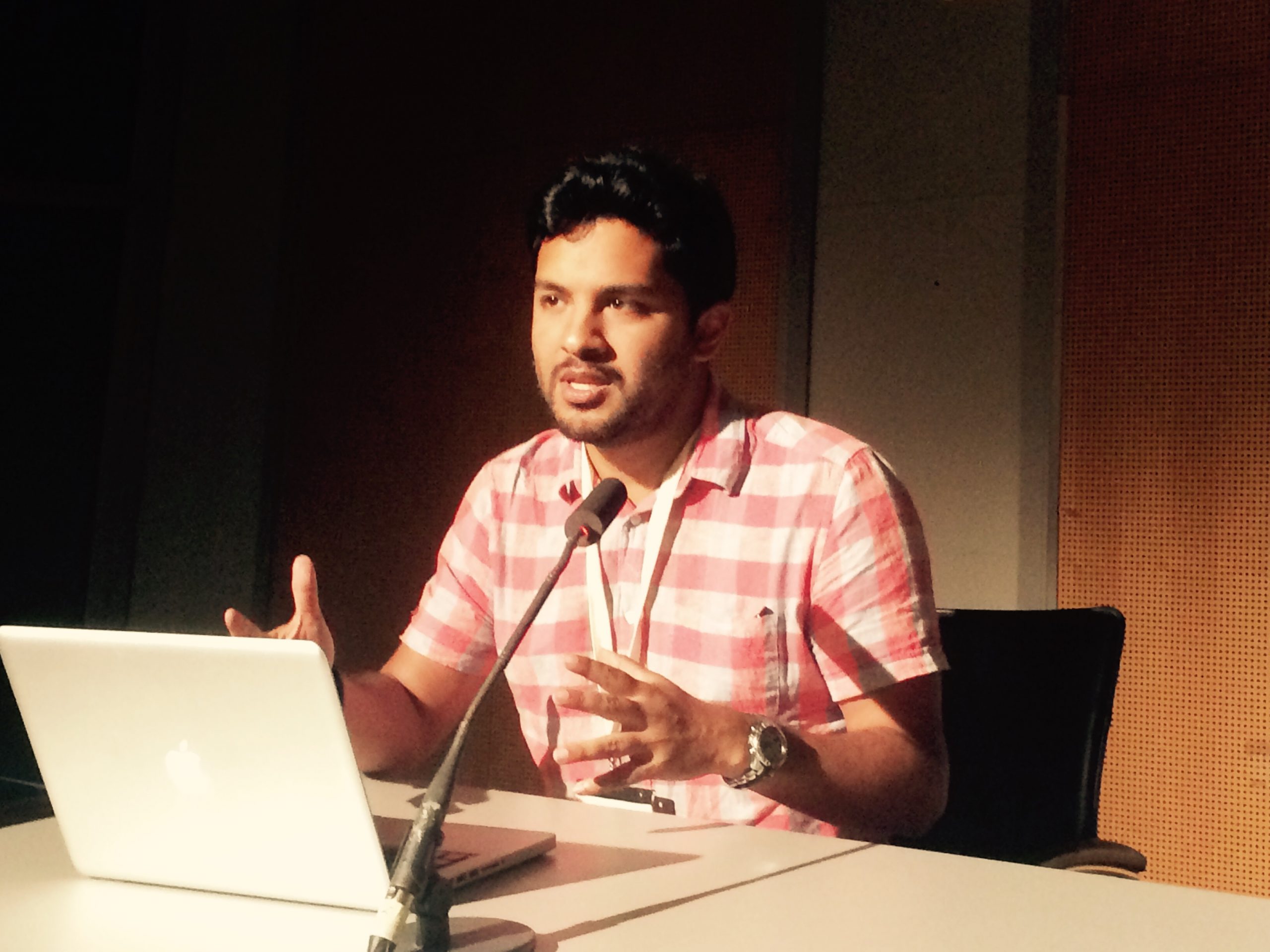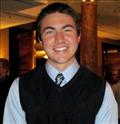
Victor Roy's research aims to spotlight the barriers to affordable medicine.
Gates Cambridge scholar Victor Roy is calling for a bold response to Hepatitis C while investigating the financial dynamics of pharmaceutical innovation that can lead to restrictions in treatment access.
Victor (2013), a PhD candidate in Sociology, has traced the development of new curative therapies for Hepatitis C and how health systems can scale-up treatment delivery for patients.
Victor’s study has focused on ‘sofosbuvir-based’ medicines manufactured by Gilead that were approved in late 2013. These medicines have received attention not only for realising cure rates of nearly 100% but also because they are expensive, with a US list price north of 90,000 USD.
“It’s a case study in the development of an important biomedical advance, and also the tensions that arise between the current system of innovation and realising public health goals,” says Victor, who is is also an MD candidate at Northwestern University’s Feinberg School of Medicine. To learn more about the challenge, he followed the history of the science and technological advances for Hepatitis C by reviewing hundreds of articles, media coverage and industry reports in addition to interviewing tens of researchers, doctors, patients, business leaders, and policymakers.
The financial dynamics of developing a medical breakthrough
In late July, Victor published part of this research in the BMJ in an article titled “Betting on Hepatitis C: how financial speculation influences access to medicine”. In the article, he and his co-author, Dr Lawrence King, follow the medicine from publicly funded labs to a small start-up to Gilead.
The article focuses on two financial dynamics: late-stage acquisitions and ‘share buybacks’. Large companies, expected by shareholders and investment analysts to deliver annual growth, often look to acquisitions as a vehicle to meet these short-term imperatives. In this case, Gilead bought a small biotech spin-out from a publicly funded lab, Pharmasset, for $11 billion. Pharmasset held the intellectual property rights to a highly promising compound, sofosbuvir, which they had researched over the course of the 2000s. After completing phase III trials, Gilead has made nearly $40 billion on their Hepatitis C medicines since early 2014.
In the article, Victor writes that beyond stockpiling a portion of this money for future acquisitions, “the company has announced $27bn in 'share buybacks' to be executed over the coming years. Share buybacks, which emerged in the 1980s and peaked in recent years, are a financial manoeuvre whereby a company purchases its own shares to increase the value of the remaining ones”. The speculative cycle of acquisitions and buybacks is part of propelling the prices of medicines, which in turn impedes affordable access for patients.
The article has spurred debate, including an exchange with Gilead’s senior leadership that is posted on BMJ’s website. “These are complex issues, and part of it includes shifts in corporate governance and the financial sector over the past two-plus decades that are now receiving greater attention, including the phenomenon of share buybacks,” Victor says. “The paper was aimed at describing some of the financial dynamics that today influence big companies that then become the source of contention with patients and health systems.”
Contributing the analysis of the financial dimension to the larger debate is one way Victor hopes that scientists, policymakers and companies can imagine reforms and alternatives so that future innovations are not only developed, but also are accessible for patients and health systems.
Scaling up treatment for patients
Underlying Victor’s research has been a motivation to see that patients can benefit from the therapy and that health systems can realise the public health potential of the new medicines. Working with colleagues, including fellow Gates Cambridge scholar Stephen Kissler (2014), Victor recently adapted a mathematical model to forecast the consequences of scaling up treatment access for the US population. In their research, which they published on Health Affairs online blog, they show that opening up access for all patients could put the US on the path to eliminating the disease over the course over the next 10 to 15 years. On the other hand, restricting access would mean that Hepatitis C would remain a persistent epidemic a decade from now.
There are an estimated 150 million people worldwide chronically infected with Hepatitis C. In 2014, Hepatitis C was the leading infectious killer in the US, claiming nearly 20,000 lives. Since the beginning of 2014, US health systems have spent over $25 billion on Hepatitis C treatments, but many continue to ration treatment because of their price.
Stephen and Victor worked together to build the model for the Health Affairs piece. "I saw that Stephen was working on a mathematical model in the Gates room. So I pulled him aside and asked him if he could teach me about modeling and if we could build a model together. He was game. So for the next six weeks we met up two to three times a week and worked on this together," says Victor. “It’s a great example of collaboration between scholars here, and how we can teach each other new methods and approaches across disciplines to make an impact.”
The piece also lays out three barriers that need to be overcome, including pricing and payment issues, the marginalisation of vulnerable groups disproportionately affected by Hepatitis C and gaps in the treatment cascade for Hepatitis C between testing and cures.
Since publication of the research city and state officials in New York have asked Victor and his colleagues to support them in developing an elimination-focused strategy.
Victor Roy
- Alumni
- United States
- 2009 MPhil Modern Society and Global Transformations
2012 PhD Sociology - King's College

Stephen Kissler
- Alumni
- United States
- 2014 PhD Applied Maths and Theoretical Physics
- King's College
Born and raised at the foot of the Rocky Mountains in Castle Rock, Colorado, I completed my Master's degree in Applied Mathematics just a few miles north at the University of Colorado Boulder in 2014. At Cambridge, my PhD research will involve mathematically modelling influenza epidemics, in order to better understand the disease's transmission and to predict which control measures (such as vaccination, travel advisories, and school closures) will most effectively slow or stop an outbreak. I hope that this will ultimately lead to a career in mathematical epidemiology, emphasizing in preventing emerging infectious diseases that cross over from animal to human hosts. In addition to research, I also love to teach mathematics, and I hope to find ways to do so during my time at Cambridge and over the course of my career.

Stephen Kissler
- Alumni
- United States
- 2014 PhD Applied Maths and Theoretical Physics
- King's College
Born and raised at the foot of the Rocky Mountains in Castle Rock, Colorado, I completed my Master's degree in Applied Mathematics just a few miles north at the University of Colorado Boulder in 2014. At Cambridge, my PhD research will involve mathematically modelling influenza epidemics, in order to better understand the disease's transmission and to predict which control measures (such as vaccination, travel advisories, and school closures) will most effectively slow or stop an outbreak. I hope that this will ultimately lead to a career in mathematical epidemiology, emphasizing in preventing emerging infectious diseases that cross over from animal to human hosts. In addition to research, I also love to teach mathematics, and I hope to find ways to do so during my time at Cambridge and over the course of my career.












